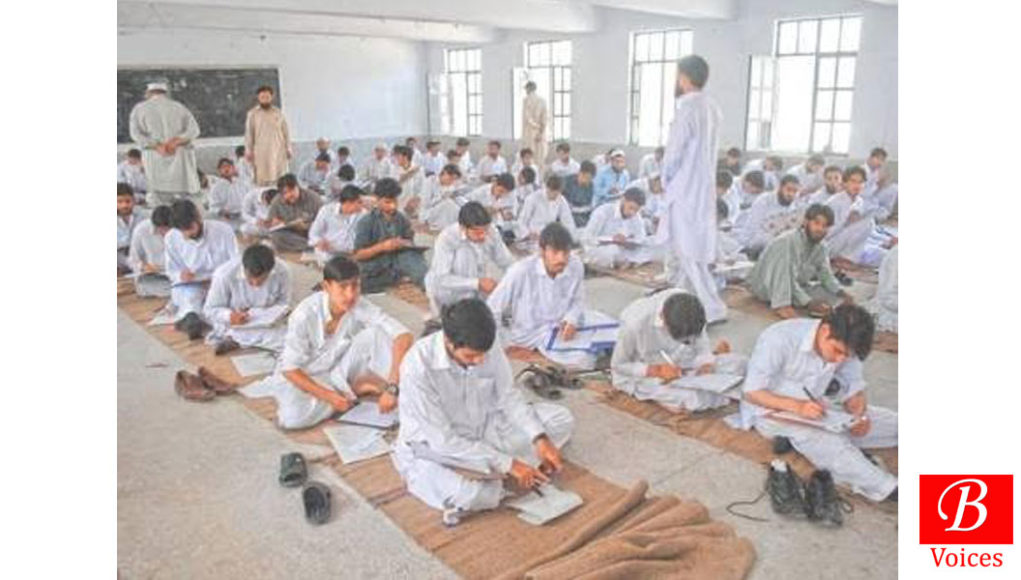The fiscal budget for Balochistan for the year 2016-17 brought with itself a lot of surprises. It made an attempt to shift the paradigm of development mechanisms.
Development funds allocated for legislators were slashed. This move was welcomed by economists and political pundits alike. The budget also gave another surprise in the form of a sharp reduction of the development budget. This has raised one genuine question: is the much-touted ‘Education Emergency’ of Balochistan over?
In January 2014, the then chief minister of Balochistan, Dr Abdul Malik Baloch, officially called an ‘education emergency’ in Balochistan. This move was criticized as a political gimmick by opposition members and analysts. There was an element of them trying to gain political mileage from this campaign but at the same time the move massively increased the spending on education in Balochistan – which was indeed welcome.
In FY 2012-13 education spending as a percentage of the total budget outlay was just 13 percent. In the year 2013-14, after the education emergency was enforced, this percentage rose to 20 percent and was maintained at the same level till 2015-16. Similarly, the education development budget as a percentage of total development expenditure was 8.5 percent in 2012-13 while the following year it jumped to 26 percent, and the level was maintained till last year.
Education budget as a percentage of the total budget fell down to 17 percent as compared to almost 20 percent last year
In the current budget the government made a surprising decision and reduced the education budget as a percentage of the total budget. This percentage fell down to 17 percent as compared to almost 20 percent last year.
In addition to that, the most surprising reduction was in the development budget of education as a percentage of total development budgets which fell steeply to 9 percent this year as compared to 25 percent last year. This is tantamount to the end of the ‘education emergency’ because education is not the first priority of government anymore.
The government could have easily justified the end of the education emergency and the cut in education budget if the status of education had improved in the province. However, this is not the case since the required targets have not been achieved so far. Data shared by different educational advocacy groups paint a bleak picture of education in the province.
In May this year, an educational advocacy group in Pakistan launched the district education rankings report of Pakistan. According to the results of that report, the overall ranking of Balochistan fell down from 7th to 8th position; Fata is better ranked as compared to Balochistan.
The same report also states that 27 out of 32 districts of Balochistan are not part of the top 100 districts of Pakistan in terms of education scores. These figures show that the status of education in Balochistan is far from satisfactory and needs more attention and government resources.
In this budget the funds for education have been diverted for Rs40 billion ‘Quetta Water Supply Project’, which will pump water upstream to Quetta city from the Pat feeder canal. This project is considered to be unrealistic by some people due to its ambitious nature and technical loopholes. Even the feasibility report of this project has not been prepared. Prioritizing it over education in terms of budget allocation makes one question the judgment of the provincial government in terms of budget-making.
This decision of the provincial government shows that they do not consider education to be important for the province. For them education seems to be a routine matter that does not require special attention. In fact, this also proves that the outgoing CM of Balochistan Dr Malik Baloch’s government was more concerned about education in Balochistan as compared to the incumbent PML-N led government.
What the PML-N government must understand that politically it cannot afford to give this credit to the National Party; therefore, they need to reconsider their approach towards education.
Foreign donors should also hold education advocacy groups accountable for their failure in the case of Balochistan
Likewise, the surprising reduction in education budget also raises a question mark on the performance of more than one education advocacy groups which work for the improvement of education. These groups receive a huge amount of funds from foreign donors and supposedly work to promote education and raise awareness all over Pakistan.
Their donors should also hold them accountable for their failure of advocacy in the case of Balochistan. Otherwise, what is the point of spending bulk load of funds when they can’t advocate focus on education in an impoverished province like Balochistan?
It is never too late for the incumbent provincial government to realise its mistake and revisit its strategy towards education. This government can still divert the funds to education from projects which will not be started in this fiscal year. This government has to present one more budget next year before the next general elections so they have that opportunity as well to re-shift the focus on to education.
There is no disagreement on the fact that Balochistan needs education more than anything at the moment. The mounting problems of the insurgency-wrecked province can never be solved if education is put on the backburner by the provincial government.
Courtesy: Originally published in The News International
Share your comments!








